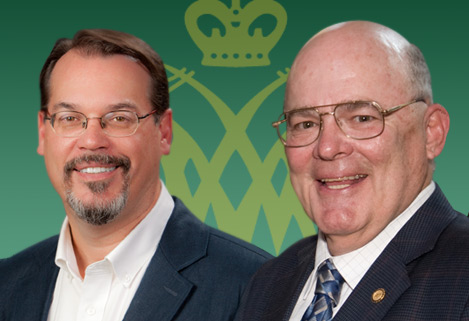Mason School Faculty create "ground-breaking" new analysis model
An economic impact analysis performed by faculty at the Raymond A. Mason School of Business at William & Mary is being hailed as "ground-breaking." The study, conducted by Raymond A. Mason School Professor K. Scott Swan and Chancellor Professor of Business Emeritus Roy L. Pearson for the Norfolk Redevelopment and Housing Authority (NRHA), was the first-ever impact analysis for a housing and redevelopment authority.
“These four related studies over a two-year period are a rare comprehensive look at the quantitative and qualitative impacts of the many diverse activities of a redevelopment and housing authority,” said Professors Swan and Pearson. In fact, the New York Housing Authority, the nation’s largest, has contacted NRHA on how to go about such a study.
The study found the agency annually creates $121.5 million for the city’s economy in addition to 1,148 jobs with an average wage of $46,434 at a time when the region was in the middle of an historically severe recession. NRHA enabled 7,065 Norfolk households to live in better quality housing than they could have afforded otherwise in FY2010. These households included a total of 17,600 people, or 7.25% of the total 2010 Norfolk population.
The study was broken down into four components:
1. Central Brambleton neighborhood from 1991 - 2010 (a case of their redevelopment efforts)
2. Housing Choice Voucher (HCV) Program in fiscal year 2010
3. Eleven NRHA assisted-rental communities in fiscal year 2010
4. Overall view of NRHA
The study concluded:
- NRHA is not only an important driver of the local economy but also serves as a safety net for lower income citizens who can’t afford housing at prevailing market rates.
- NRHA provides critical housing options through creativity and funding predominantly from U.S. Department of Housing and Urban Development which lowers the need for tax support locally.
- NRHA is vital to neighborhood stabilization and increasing tax revenues within in the city. NRHA helps improve the city’s infrastructure along with the safety and quality of housing.
- NRHA revitalizes crime-plagued neighborhoods, with low property values into quality, affordable housing choices for thousands of people.
- NRHA promotes economic self-sufficiency, education, training and asset development. All this adds up to an irreplaceable economic and social gain for Norfolk citizens.
- 93% of NRHA spending is captured and recirculated in Norfolk, which is among the highest percentages for a local area ever found in W&M’s long history of performing these studies.
The professors noted, “It is clear that success of their programs is dependent on highly motivated, quality people and effective partnerships. One of the most important is NRHA’s continuing ability to work with City of Norfolk. This seems to be a solid relationship — mutually admirable comments and success abound — and their efforts match well with the city’s initiatives.”


